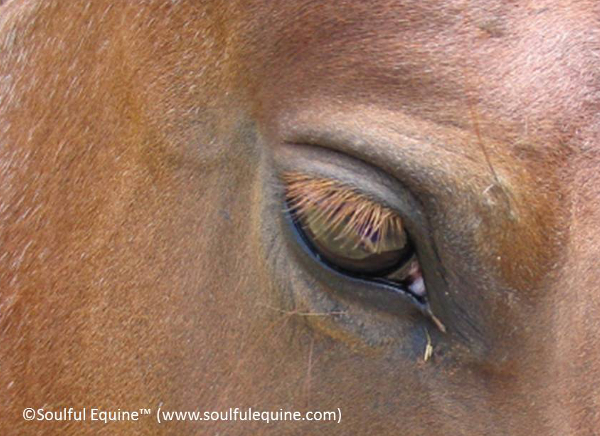
Have you ever attended an equine event and witnessed something between a horse and her human that just didn’t seem right?
Even if a horse appears to be obedient, there may still be those subtle signs of unhappiness she exhibits that are typically overlooked.
For example, maybe the spark in the horse’s eye is gone and she has a dull, depressed energy about her. There may be a feeling of fear that radiates through her body, exhibiting tension. Maybe she swishes her tail while riding or pins her ears.
Some horses may decide to cow kick at you or buck you off out of fear or discomfort. Others simply shutdown, appearing obedient.
As you can imagine, the signs can be subtle or obvious.
These signs of unhappiness are not because they’re being disobedient, it’s usually because they simply don’t think much of you or humans as a whole.
Horses are masters at communicating if we just listen to them. Many times we’re too busy to listen.
We may be preoccupied with life’s daily challenges or maybe the main thing on our mind is that next big show or race. Being excited about participating in your chosen discipline is human nature, but how does your horse feel about it?
Does she like her discipline?
You may be wondering if horses really have an opinion – yes they do. They have an opinion about everything, just like you do. They’re also thinking, feeling beings who have a spirit to boot.
A Horse’s Behavior
Why would our equine companion exhibit various signs that we may either overlook or consider undesirable?
Before I started studying and digging deep into equine behavior and psychology, I would usually label undesirable traits in my horse as “training issues.” However, I now understand it runs deeper than mere training issues or using the proper technique.
It first starts with how that horse feels about you.
In the beginning when you first meet a horse, she will think of you differently depending on her experiences or lack of experience with people.
It’s not much different than you meeting someone new for the first time. Are you going to trust them enough to ask them to baby sit your first born that very day? I doubt it. More than likely you will get to know them first.
Over time, you build trust, rapport and respect with each other. That doesn’t happen in the first meeting. It happens over time depending on the circumstances.
With horses, all that applies as well except we have another factor to consider. They’re horses. This means, if you study horse behavior, you’ll come to find that they’re much different than us.
They have a structured social order based on relative dominance, but it includes a deep understanding built on trust and respect. This equation also includes love – yes, horses do express love for one another.
This intelligent order in the nature of the horse produces a balance that we attempt to imitate but usually fall short of.
Why is that? Why do we fall short?
Humans have different priorities in their lives than horses do. Humans want to win that next race or big futurity no matter what the sacrifice. However, horses have simple needs. They want to be safe and comfortable.
Is Your Relationship with Your Horse a Priority?
In order to win your horse’s heart, it’s important that you reflect upon your principles, meaning, you ask yourself what are your foundational beliefs when it comes to your horse’s well-being.
That doesn’t mean only making sure they have enough water, food, etc. It goes far beyond that.
In order to win your horse’s heart, you have to understand her from her point of view. In other words, you have to understand horse behavior at a deeper level.
This is not about training, the most popular technique or following a particular equine clinician – it’s about understanding how horses tick.
Understanding how they tick is one thing. How you use that knowledge is another.
Nature has a built-in wisdom in every single detail of her creation, including us. We belong to the wisdom of nature; nature does not belong to us.” ~ Caroline Myss
This is where you once again have to ask yourself, “What are my principles?”
Do you use this knowledge to create a robot or an obedient horse who no longer has that special look in her eye that she once did as a young horse? Or do you strive to seek that deep level of connection with horses that doesn’t harness their spirit or take away their dignity?
Something I’ve learned over the years with horses that no one could ever tell me until I experienced it and put it into practice is:
It’s the little things that matter to a horse.” ~ Ronnie Willis
I believe this is the golden nugget of information that enables me to build deeper levels of communication and understanding with horses.
It helps me to quickly build rapport, trust and a deeper level of connection. I use this principle each and every time I’m around a horse.
I take this principle seriously and don’t take it for granted.
Notice, it’s not a training technique. It’s about building and deepening your relationship with your horse.
So, what do you think are those “little things” that matter to your horse?
Share them with me and share this article with your friends to let them know that you support the principle of putting your horse’s noble nature first!
Keep it soulful,
Stephanie Krahl
####
Photo: Stephanie’s equine partner, Ransom
